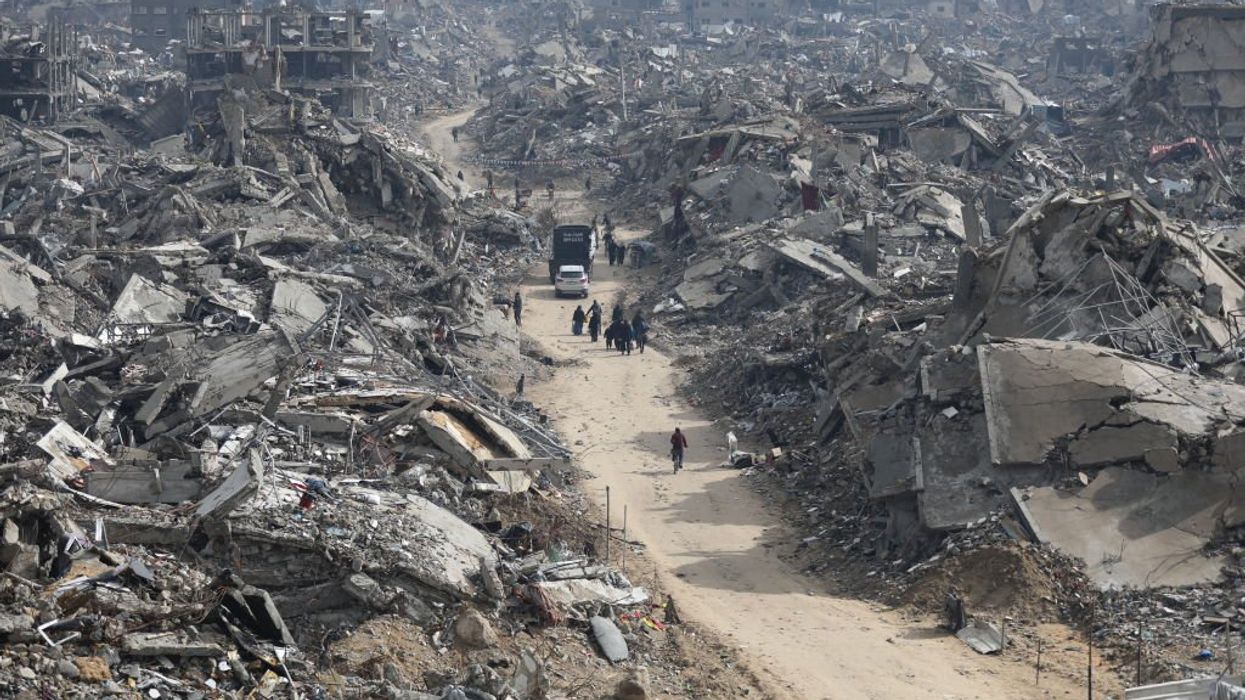Ceasefire agreements are like modern constitutions. They are fragile, loaded with idealistic promises, and too easily ignored. Both are also crucial to the realization of long-term regional peace. Indeed, ceasefires prevent the violence that is frequently the fuel for instability, while constitutions provide the structure and the guardrails that are equally vital to regional harmony.
More than ever, we need both right now in the Middle East.
The ceasefire in Gaza, that seems to be holding, is cause for celebration and, for some, optimism. Every day that passes without the destructive violence of the past sixteen months, and every hostage that is released during the present truce, provides some hope that the Israeli-Palestinian conflict might ease a bit. Negotiators on both sides should be commended.
But the hard work of finding an enduring solution to a centuries-old dispute remains. And that is where constitutions come in. Constitutions in the region are certainly part of the problem; maybe they can also be part of a lasting solution.
No one should doubt that constitutions function differently in Middle Eastern countries than in many other parts of the globe. Nathan Brown has written that constitutions in most Arab states are “generally viewed as elegant but insincere expressions of aspirations that rulers issue in an effort to obscure the unrestrained nature of their authority. Constitutions are written not to limit authority…but to mask it.” He’s right, of course. If modern constitutions are meant to limit political power, establish government institutions, enumerate individual and group rights, and identify a nation’s most fervent aspirations, most Middle Eastern constitutions badly miss the mark. To paraphrase Brown’s primary take-away: constitutions perform only minimally in a nonconstitutional Arab world.
And now consider that a written constitution does not even exist in Israel.
The story of why is familiar. In May, 1948, the National Council of the newly-established State of Israel issued a Declaration of Independence. In it was the promise of a fresh constitutional draft. It would take four months for the Israeli constitutional framers to whip up such a draft, declared the Declaration of Independence. Well, that four months came and went, and, despite efforts to resurrect the call for drafting a constitution over the next 77 years, supporters of Israeli constitutionalism are still waiting.
So, we have nonliberal constitutions in many Arab countries and an unwritten constitution in Israel. Sadly, both make sense. To suggest that Arab countries should all of a sudden become liberal republics is both foolish and parochial, and to condemn Israeli leaders for refusing to check their authority as guardians of Jewish statehood is arrogant.
And yet those Arab constitutions, and the lack of a written constitution in Israel, is a big part of the problem. Constitutions are not a source of accountability in the region. Any solution, whether it be two-state or one, has to reckon with these constitutional deficiencies. Even slight reform of the fundamental laws in the Middle East would make a difference. The strengthening of political accountability in authoritarian Arab regimes would make negotiations with Israel more productive. (There was some hope for progress after the Arab Spring more than a decade ago. That hope has faded.) Equally, the extension of additional freedoms to Palestinians in Israel will help to ease the impasse. Both adversaries must move their “constitutions” to the left. Not an easy task, for sure. But one that would have long term, positive ramifications.
Neither constitution has to fully resemble those in North America or Western Europe. But both have to move, ever so slightly, in those directions.
Modern constitutions are like ceasefire agreements. If followed, they can right the political ship, provide much needed time and space for reflection, and, yes, even save lives. The Middle East conflict appears intractable at the moment. Constitutional reform in the region is part of the solution.
Beau Breslin is the Joseph C. Palamountain Jr. Chair of Political Science at Skidmore College and author of “A Constitution for the Living: Imagining How Five Generations of Americans Would Rewrite the Nation’s Fundamental Law.”



















 A woman prepares to cast her vote on May 4, 2025 in Bucharest, Romania. The first round of voting begins in the re-run of Romania's presidential election after six months since the original ballot was cancelled due to evidence of Russian influence on the outcome. Then far-right candidate Calin Georgescu surged from less than 5% days before the vote to finish first on 23% despite declaring zero campaign spending. He was subsequently banned from standing in the re-rerun, replaced this time round by George Simion who claims to be a natural ally of Donald Trump.Getty Images, Andrei Pungovschi
A woman prepares to cast her vote on May 4, 2025 in Bucharest, Romania. The first round of voting begins in the re-run of Romania's presidential election after six months since the original ballot was cancelled due to evidence of Russian influence on the outcome. Then far-right candidate Calin Georgescu surged from less than 5% days before the vote to finish first on 23% despite declaring zero campaign spending. He was subsequently banned from standing in the re-rerun, replaced this time round by George Simion who claims to be a natural ally of Donald Trump.Getty Images, Andrei Pungovschi
Trump & Hegseth gave Mark Kelly a huge 2028 gift